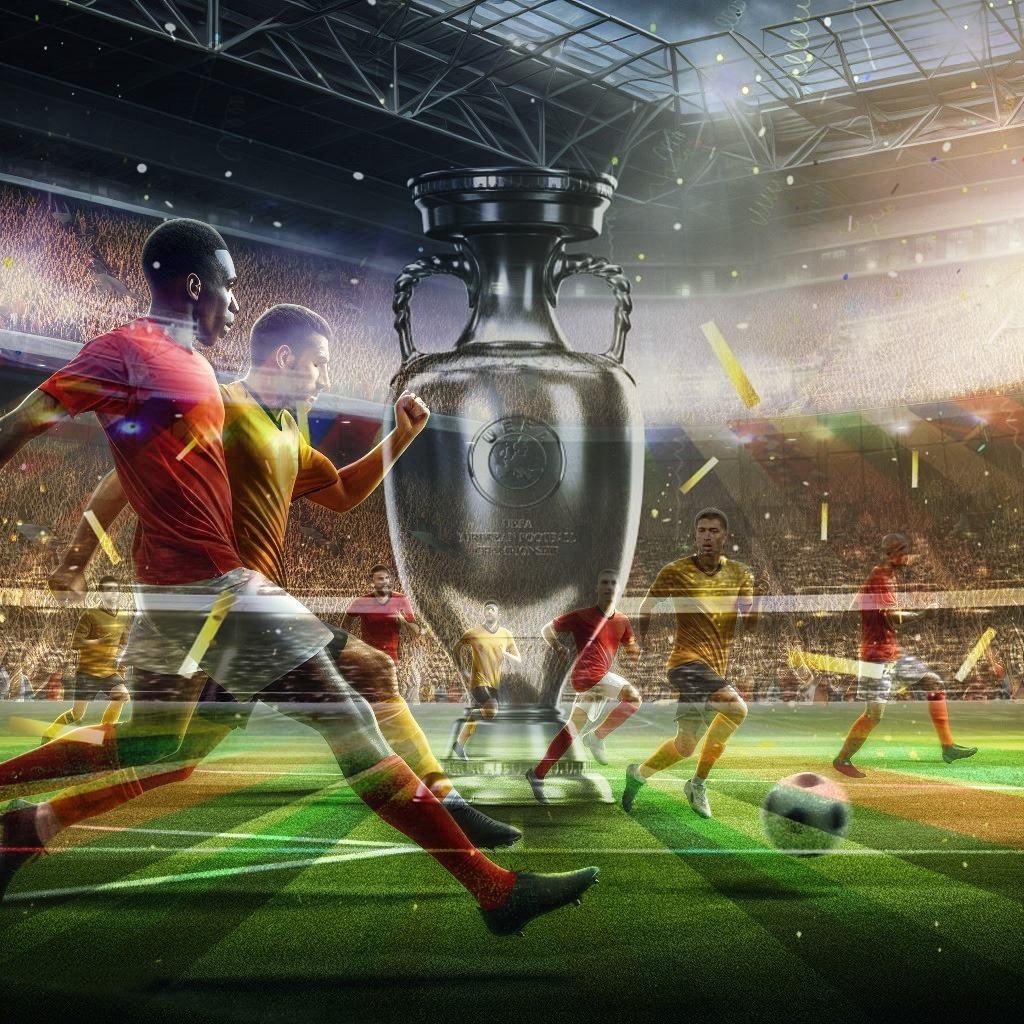Why do we love (our) football?
If you ask anyone why do we love football - you'd learn that the most common answer is that it gives us a sense of community, of belonging to some kind of tradition. Football is often a tool that allows us to see certain social mechanisms under the microscope. The intense matches, the passion we find on the field, the lucky victories, the unlucky defeats, the rewarded efforts and the organization of the match are all elements that can also be identified at the level of any society.
FOOTBALL


Football, the most loved sport in the world, has gathered, in 2023, 3.5 billion fans around televisions or at the stadiums, according to Worldatlas. According to UEFA, the recently concluded European Championship attracted more than 5 million fans who attended matches in the Fan Zone.
The tournament was watched at home by more than 5 billion people and 2.6 million spectators were present at the stadiums. The UEFA Champions League Final in 2023 had a total of 450 million viewers, more than twice when compared with the Superbowl Final! Football is a global phenomenon that attracts millions of people, both on stadiums and in front of TV, a phenomenon that generates emotions and that actively contributes to the formation of individual and collective identities.
Why do we love (our) football so much that - being a sport whose foundations were laid in mid-19th century Britain and which developed during the Industrial Revolution - it became the most popular sport in Europe? Even in Latin America or Africa.
In the following I will try to explain the reasons why billions of people watch or love football. My approach on the subject will not be from a historical point of view, but will focus on the more subtle mechanisms that lead people to follow this global game.
Why do we love (our) football?
On one hand, we can say that football has become more than a sport, turning into a ritual confrontation between nations.
On the other hand, football functions as a space through which people synchronize with the global society. As Koen Stroeken also states, football acts as a magnifying glass that allows people to see certain social mechanisms up close. The intense matches, the passion on the pitch, the lucky wins, the unlucky defeats, the rewarded efforts and the organization of the match are all elements that can also be identified at a closer look at any society level.
Just as well, there are authors who believe that football is no different from other forms of entertainment, and that the answer to the question - why do we love football? - has a simple explanation, lacking in depth. That is, that football itself is nothing more than a way for people to detach themselves from the conflicts of everyday life, that it's only a smokescreen that prevents people from seeing the mechanisms through which the masses are manipulated and by which certain fantasies are created to compensate for the problems of daily life, creating an illusory sense of belonging.

However, football fans are not an inactive mass, detached from society, otherwise how would their participation in protests be justified, how could we explain the political messages that appear, more often than not, on the stadiums, how do we explain their political consciousness? Let's just remember the 2012 protests in the University Square in which several groups of ultras belonging to the Bucharest teams participated.
In Egypt, during the 2011 revolution, Zamalek and Al Ahli fans took to the streets with protesters and occupied Tahrir Square, the center of the demonstrations. In stadiums across Europe we often see political messages displayed by fans, perhaps the most common being messages against modern football, where fans challenge the commercialization of football by arguing that they are treated as mere consumers and that football has become a mere product. Football is a form of entertainment, but we cannot say that it acts as an "opium of the masses" as long as fans demonstrate political awareness and as long as they are socially involved, regardless of how their involvement manifests within this space.
What is the expert analysis of the psychology behind the love for this sport?
Christian Bromberger, the French anthropologist, says that every football match between teams from rival cities, regions or countries turns into a ritual war. Ritual warfare includes songs, banners, torches, smoke bombs, firecrackers, supporters are divided into brigades or legions and discuss in terms of "them versus us". People come to identify with a team, be it the local or national team because they are seen as symbols of collective ways of being, not so much by the way they play, but rather by the stereotypes projected on the team, either through the tradition of the team or the local one.
Eric Hobsbawm says that the ease with which each individual can identify with the nation makes sport the medium through which national feelings can be reproduced - as the community imagined by millions is easily projected onto a team of 11 people. Football has the ability to create a link between local values and universal values through a process where a team becomes an ideal standard of a population. Bromberger says that football can embody people's deepest feelings about the world, which is a complex web of different identities.
Let's go back to the ritual part. A football match requires a well-defined space with clear temporal landmarks, with a program of cyclical and known ceremonies, with certain gestures, objects, symbols. This space is symbolically delimited by the daily life of individuals, as during the football match the hierarchies in society and certain social norms are suspended. During the match, a sense of community is created that is sometimes missing from everyday life, people hug each other at the goals, make similar gestures, sing the same songs and chat with their neighbors, even if they don't know each other.
Those 90 minutes of the football match represent, on the one hand, a symbolic delimitation from everyday life, from hierarchies, ways of manifesting, emotions, and on the other hand, a transition to a space that assumes different, similar values, symbols and emotions with those of religious ceremonies, not including a system of beliefs, but rather a system where stable relationships emerge. Fans are, on the one hand, obliged to participate in the ritual of the football match, they must respect the rules and regulations of the match and on the other hand, participating and respecting these rules and regulations helps to suspend certain fears, anxieties and allows them to be a part of a common group and, moreover, of a common future.

- A football proverb says that no match is like another, so every time we participate in a well-defined ritual, performed differently by the actors in the stadium, be they players, coaches or supporters. -
We write and create illustrations
because we love football.
As Bromberger rightly points out, football does not promise us a glittering future, but a deep vision of everyday life, it shows us the identities we share and shape our societies. The football match includes elements such as competition, performance, chance (luck), it allows us to observe both the progress of individuals and the collective progress of a team, these elements being at the same time present in society.
Therefore, we can say that the football match is a simulation, in a well-defined space, of everyday life. What attracts us to this simulation is also the unpredictability surrounding it. Even if - from a ritual point of view, we know the elements, the rules of the match and the norms surrounding the football match, the way it unfolds is different every time.
Why do I think we love football?
A football proverb says that no match is like another, so every time we participate in a well-defined ritual, performed differently by the actors in the stadium, be they players, coaches or supporters. Actors in turn are constantly changing, idols appear and disappear, teams appear and disappear, just like everyday. Basically, the football match shows us how uncertain the world we live in is and how ephemeral people's values are.
The match itself is not a way to escape from everyday reality, it is a symbolic space that allows people to feel part of a social group, ritualistically participating in an unpredictable event that allows both the observation of social mechanisms and the challenge of these social mechanisms which do not fit into the values of the group formed at the stadium. Football is a world that unfolds in just 90 minutes, but leaves deep traces in our minds, making us love it forever.

